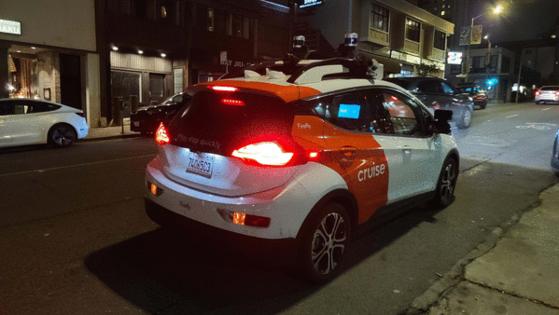GM's Cruise returns to Bay Area a year after robotaxi-pedestrian crash
Published in Business News
General Motors Co.'s Cruise LLC self-driving auto business is back on the roads in the Bay Area with mapping vehicles almost a year after a pedestrian accident there halted operations nationwide.
Cruise said Thursday it's deploying manual mapping vehicles in Sunnyvale and Mountain View and intends to progress to supervised testing with up to five AVs in the northern California communities later this fall.
"Resuming testing in the Bay Area is an important step forward as we continue to work closely with California regulators and local stakeholders," the company said in a social media post. "This will allow our local employees to engage directly with our product as they refine and improve our tech through R&D."
A Cruise spokesperson said in a statement: "While the purpose of this small-scale presence is specifically to allow employees to engage with our product for research and development purposes, we look forward to taking this step as we continue our conversations with California regulators and stakeholders."
GM has been focused on relaunching Cruise service, changing its leadership and rethinking its safety strategy after one of the unit's Chevrolet Bolt autonomous electric vehicles in October 2023 dragged a San Francisco pedestrian who was hit by a human-driven vehicle and thrown into the AV's path.
The incident led regulators to scrutinize Cruise's safety standards, leading the company to suspend its services. Kyle Vogt, former Cruise CEO and founder, left the company in November 2023.
In June, GM named Marc Whitten as Cruise's next CEO. Whitten is a former Amazon executive and founding engineer at Xbox. In February, the automaker hired Steve Kenner as its chief safety officer, a role the company established after the pedestrian crash.
Cruise has relaunched service with safety drivers in Houston, Phoenix and Dallas. In August, Cruise and Uber Technologies LLC announced they entered a multiyear deal for customers to book autonomous Cruise robotaxis through the Uber platform starting in 2025.
In the second quarter, GM executives announced the company would pause production of the Cruise Origin robotaxi at the Factory Zero Detroit-Hamtramck Assembly Center, which led to a $600 million charge. Cruise is instead focused on using all-electric, autonomous Chevrolet Bolts.
©2024 www.detroitnews.com. Visit at detroitnews.com. Distributed by Tribune Content Agency, LLC.












Comments